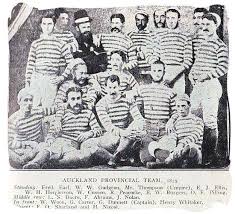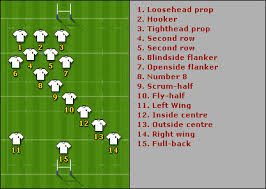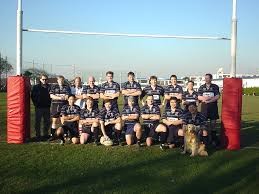August 29, 2007 — Jimmy Lewis (aka Charlie McKill),reports on the history of rugby from it's stumbling origins to the current world cup.
The game of football which was played at Rugby School between 1750 and 1859 permitted handling of the ball, but no-one was allowed to run with it in their hands towards the opposition's goal. There was no fixed limit to the number of players per side and sometimes there were hundreds taking part in a kind of enormous rolling maul. This sport caused major injury at times. The innovation of running with the ball was introduced some time between 1859 and 1865. William Webb Ellis has been credited with breaking the local rules by running forwards with the ball in a game in 1823. Shortly after this the Victorian mind turned to establishing written rules for the sports which had earlier just involved local agreements, and boys from Rugby School produced the first written rules for their version of the sport in 1870. Rugby would also be considered a dangerous game but fun.
  |
 |  |  |
Around this time the influence of Dr Thomas Arnold, Rugby's headmaster, was beginning to be felt around all the other boarding schools, and his emphasis on sport as part of a balanced education naturally encouraged the general adoption of the Rugby rules across the country, and, ultimately, the world.

























































No comments:
Post a Comment